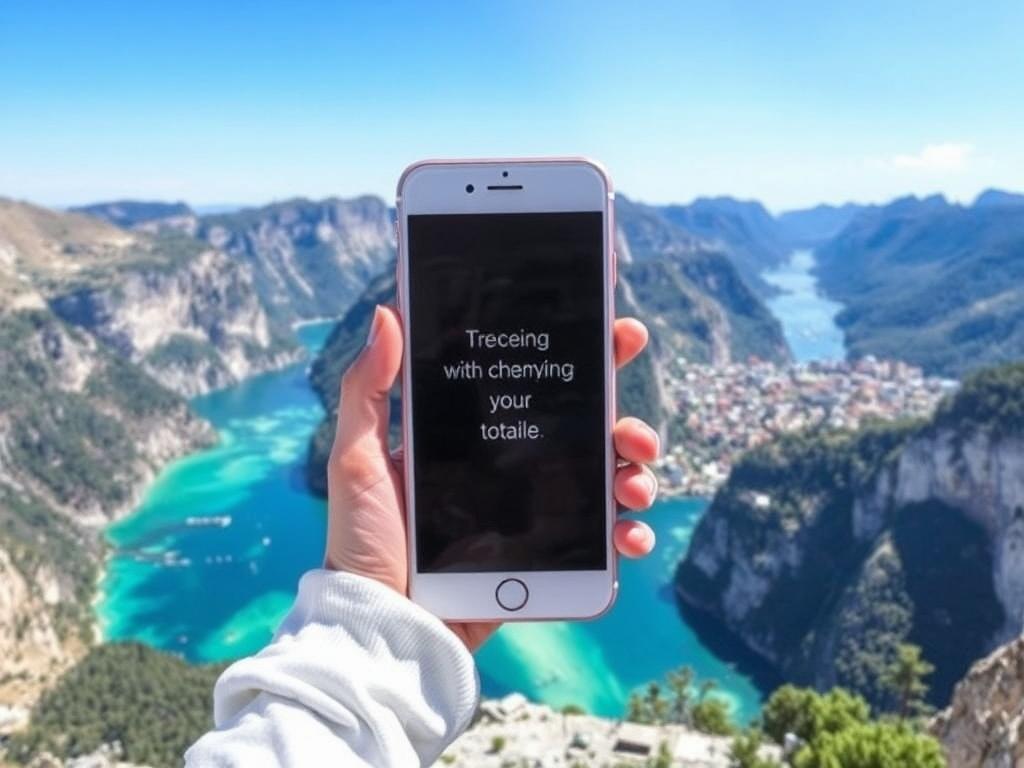
How to Travel Without a Smartphone: A Guide to Tech-Free Adventures
Traveling without a smartphone might sound unthinkable in today’s hyper-connected world, but it can be a refreshing and freeing experience. Whether you’re looking to disconnect from constant notifications, simplify your trip, or challenge yourself to navigate the world more traditionally, learning how to travel without a smartphone is easier than you might think. This guide will walk you through practical tips, tools, and mindsets to help you enjoy your journey without relying on that small, glowing rectangle in your pocket.
Why Travel Without a Smartphone?
For many of us, our smartphones are lifelines while traveling. They provide maps, instant information, language translation, and a means to stay in touch with friends and family. However, leaning heavily on a smartphone can sometimes detract from the experience. You might find yourself glued to a screen rather than soaking in the sights and sounds around you.
Traveling without a smartphone encourages you to be more present and engaged with your environment. It forces you to rely on more traditional skills like reading physical maps, asking locals for directions, and planning carefully ahead of time. This approach can lead to unexpected adventures and deeper connections with the places you visit.
Additionally, going smartphone-free can reduce the theft risk and problems with battery life. You won’t worry about losing signal or running out of data, which can sometimes bring peace of mind on the road.
Essential Planning Before You Go
Research and Prepare Thoroughly
When you travel without a smartphone, preparation is key. Without quick access to apps and online information, you’ll want to have most of the important details mapped out beforehand. This means doing thorough research and printing out or writing down vital information.
- Itineraries: Plan your daily activities in advance and note important addresses, opening hours, and contact numbers.
- Documents: Carry physical copies of your travel tickets, hotel reservations, and identification. Store them safely but accessibly.
- Maps: Invest in a good paper map of your destination or a regional guidebook. These can be invaluable for navigation without a GPS.
- Phrasebooks: If traveling to a country where you do not speak the language, bring a pocket phrasebook or language guide.
Create a Travel Folder
A small folder or envelope can keep your travel documents, maps, and printed information organized and easy to find. This helps avoid scrambling through a backpack or suitcase when you need something quickly.
Inform Others of Your Plans
Since you won’t have instant communication via a smartphone, it’s wise to share your itinerary with a trusted friend or family member. Let them know where you’ll be each day so they can check in if necessary.
Navigation Without a Smartphone
Master the Paper Map
Modern travelers often forget how to read a paper map, but it is a skill worth revisiting. Spend some time familiarizing yourself with symbols, scales, and orientation before your trip. Always know your approximate location and the direction you intend to go.
Ask Locals for Directions
One of the best ways to explore authentically is to interact with locals. Asking for directions can lead to engaging conversations and valuable recommendations. Just remember to carry a small notebook or journal where you can jot down instructions or street names.
Use Landmarks for Orientation
Instead of relying on street names or GPS, try to remember prominent landmarks such as towers, churches, parks, or rivers. These can act as natural guideposts to keep your sense of direction.
Keeping Connected Without a Smartphone
Public Phones and Internet Cafes
While rare in some places, public phones can still be found in many cities. Consider carrying some local currency coins or a prepaid phone card. Internet cafes are another option if you need to check emails or send messages occasionally.
Stay at Accommodations That Offer Phone Access
Many hotels and hostels allow guests to make local or international calls from a front desk phone. This can be handy in emergencies or for confirming reservations.
Use a Basic Cell Phone
If you don’t want full smartphone capabilities but still want to stay reachable, consider bringing a basic cell phone. These phones offer calls and SMS without the distractions of social media or apps.
Capturing Moments Without a Smartphone Camera
Not having a smartphone camera doesn’t mean you have to miss out on memorable photos.
Carry a Compact Camera
A lightweight point-and-shoot camera or a small digital camera can capture great quality images, often better than phone cameras, especially in varying light conditions.
Use Disposable Cameras
For a nostalgic twist, a disposable film camera can add an element of surprise to your trip. You’ll only see your photos after the roll is developed, adding anticipation to your memories.
Write Travel Journals or Sketch
Sometimes the best memories are recorded through words or drawings. Keeping a journal or sketchbook can help you notice details you might otherwise miss and create a personal travel record.
Managing Finances Without Mobile Banking
Traveling without smartphone banking apps requires a bit more discipline and planning, but it is definitely doable.
Use Cash and Travel Cards
Ensure you carry enough local currency for daily expenses. Also, travel cards or prepaid debit cards can be helpful for larger payments and emergencies.
Keep Receipts and Monitor Spending
Without apps that track your purchases, keep physical receipts and review your spending regularly to stay within budget.
Visit Banks or ATMs in Person
When you need to withdraw cash or handle banking transactions, use ATMs or bank branches. Make sure you know their locations ahead of time.
Entertainment and Information On the Go
Pack Books and Magazines
Reading can be a great way to pass the time during long journeys or quiet evenings. Carry a physical book, travel guide, or magazine instead of relying on digital devices.
Download Content Before You Leave
If you do use a smartphone occasionally, consider downloading music, podcasts, or audiobooks before going offline. Otherwise, look out for cultural centers, libraries, or cinemas at your destination.
Engage with People
One of the richest sources of entertainment and learning while traveling is interacting with locals and fellow travelers. Sharing stories, learning traditions, and joining community events can be memorable experiences without digital distractions.
Emergency Preparedness Without Smartphones
It’s crucial to be prepared in case of emergencies when you don’t have a smartphone at your disposal.
Memorize Emergency Numbers
Write down or memorize the local emergency contact numbers. In many countries, 112 works universally, but check locally as well.
Carry a Whistle or Personal Alarm
For personal safety, consider small devices like whistles or alarms that can attract attention without needing phone access.
Inform Your Embassy or Consulate
If traveling abroad, know the location and contact details of your country’s embassy or consulate in case of lost documents or urgent assistance.
How to Overcome Common Challenges
Traveling without a smartphone comes with some obstacles, but here are practical solutions:
| Challenge | Without Smartphone Issue | How to Handle It |
|---|---|---|
| Lost or late transportation | No access to real-time updates | Check printed timetables, ask station staff, or fellow travelers |
| Language barriers | No instant translation apps | Carry a phrasebook, learn key phrases in advance, use gestures |
| Finding accommodation | Cannot book or check availability on the spot | Pre-book where possible, or visit hostels/hotels in person |
| Staying in touch | Inability to send instant messages | Use postcards, public phones, or arrange occasional check-in times |
Benefits of Traveling Without a Smartphone
Choosing to travel without a smartphone offers unique rewards:
- Increased mindfulness: You become more present and attentive to your surroundings.
- Enhanced social connections: More face-to-face interactions and natural conversations.
- Reduced stress and distraction: Free from endless notifications and the urge to check social media.
- Stronger problem-solving skills: Navigating with maps and human help sharpens your ability to think on your feet.
- Memories that last: Experiences often feel more vivid and meaningful when unplugged.
Tips for Bringing a Smartphone Back Later
If you plan to disconnect only during certain parts of your trip, here are a few ways to ease back into smartphone use healthily:
- Set boundaries: Use “airplane mode” or apps that limit screen time.
- Prioritize in-person experiences: Avoid the temptation to constantly check your phone.
- Use offline maps and apps: Download information before heading out to conserve battery and avoid distractions.
Final Thoughts on a Tech-Free Travel Experience
Traveling without a smartphone is no longer impossible in our digital age—it just requires some old-fashioned preparation and a willingness to slow down. By embracing this approach, you open the door to more authentic adventures, meaningful human connections, and a renewed appreciation for the world around you. Whether you’re seeking a break from technology or searching for a fresh perspective on travel, giving up your smartphone for a while can become one of the most rewarding journeys you take. So pack your maps, charge your curiosity, and embark on a truly liberating trip without the crutch of a screen. Happy travels!
Conclusion
Traveling without a smartphone may seem challenging at first, but with the right mindset and preparation, it becomes a unique way to deeply connect with your environment and yourself. From planning and navigation to staying safe and entertained, there are countless strategies and tools that can help you enjoy your trip without constant digital assistance. The benefits of disconnecting extend beyond the practical—offering a more mindful, immersive, and enjoyable travel experience. Whether for a weekend getaway or an extended adventure, traveling without a smartphone reminds us that sometimes the best way to find ourselves is to leave the screens behind and explore with open eyes and an open heart.




